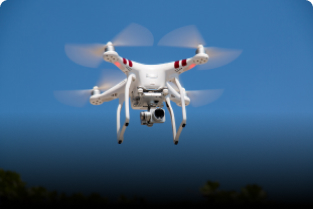The drone industry is soaring—literally and figuratively. From aerial photography and delivery services to military applications and agricultural monitoring, drones are revolutionizing multiple sectors. With this rapid growth comes a rising demand for skilled professionals—especially drone engineers.
But what does it take to become a drone engineer? Let’s explore the educational path, key skills, and certifications needed to launch a successful career in this field.
Who Is a Drone Engineer?
A drone engineer designs, builds, tests, and maintains unmanned aerial vehicles (UAVs). Their responsibilities span multiple disciplines, including mechanical design, electronics, software development, and aerodynamics.
Educational Requirements to Become a Drone Engineer
1. Bachelor’s Degree (The Foundational Step)
Most drone engineers start with a bachelor’s degree in a relevant field. Common degree options include:
-
Aerospace Engineering
-
Mechanical Engineering
-
Electrical or Electronics Engineering
-
Computer Science or Engineering
-
Robotics Engineering
-
Mechatronics Engineering
These programs typically cover critical areas such as physics, circuit theory, control systems, computer programming, and design—forming a strong technical base.
2. Specialized Courses or Electives in UAV/Drone Technology
Some universities and engineering colleges now offer electives or modules on drone systems, avionics, and robotics. Choosing such electives during your undergraduate program can give you a competitive edge.
Advanced Education (Optional but Helpful)
3. Master’s Degree or Postgraduate Specialization
A master’s in aerospace engineering, robotics, or AI can enhance your expertise in drone-specific fields like:
-
Autonomous navigation
-
Machine learning for UAVs
-
Flight dynamics
-
Advanced propulsion systems
This is especially valuable for research, development, or leadership roles.
Certifications and Hands-On Training
While degrees provide theoretical knowledge, practical experience is crucial in drone engineering. Consider the following:
• Drone Pilot Certification
In many countries (including India and the U.S.), operating drones commercially requires a license from the aviation authority (DGCA in India, FAA in the U.S.).
• UAV Design and Programming Courses
Platforms like Coursera, edX, Udemy, and drone-specific academies offer hands-on courses in:
-
Drone assembly
-
Flight control programming
-
Autonomous navigation systems
-
Aerial mapping and imaging
• Internships or Projects
Working on drone-related projects during college, joining robotics clubs, or interning with drone startups helps build real-world experience and a portfolio.
Important Skills for Drone Engineers
To succeed in this field, you’ll need:
-
Proficiency in CAD and simulation tools (like SolidWorks, MATLAB)
-
Strong programming skills (Python, C++, ROS)
-
Understanding of aerodynamics and propulsion
-
Knowledge of embedded systems and microcontrollers
-
Teamwork, problem-solving, and analytical thinking
Final Thoughts
Becoming a drone engineer is both challenging and rewarding. With the right educational background—usually a bachelor’s in engineering—and some focused training in UAV technologies, you can enter this high-potential field. As drone applications continue to expand, so will the opportunities for skilled engineers who can drive innovation in the sky.

